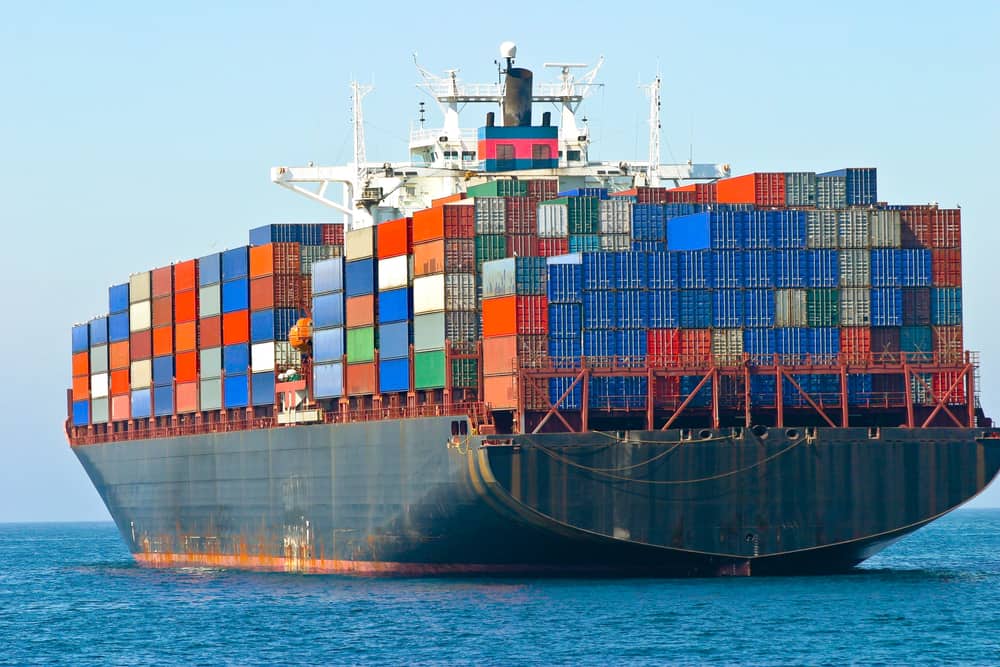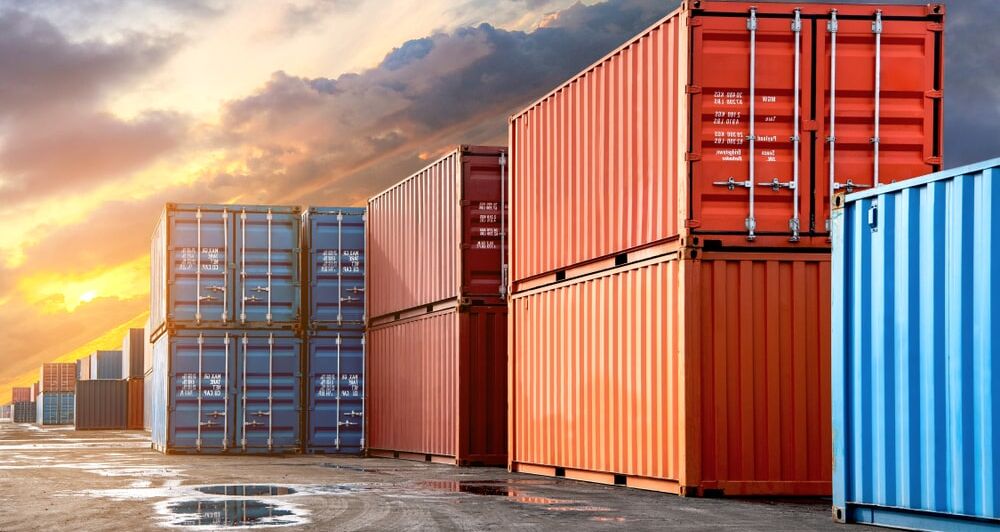Why Shipping Containers reshaped global commerce
Wiki Article
Every little thing You Need to Find Out About Shipping Containers and Their Practical Applications
Shipping containers have advanced from plain tools for transportation to functional structures with numerous useful applications. Their robust layout and basic sizing make them optimal for a series of usages beyond shipping. From innovative housing remedies to lasting farming, their versatility is noteworthy. Yet, the opportunities do not end there. Discovering their different functions reveals unexpected insights into innovative solutions and modern-day obstacles. What other functions could these containers play in today's world?The Layout and Structure of Shipping Containers

Internally, containers are designed to maximize area, typically including wooden or steel floor covering that can support substantial weight. Ventilation systems might be included to protect against dampness build-up, which is critical for sensitive freight. In addition, enhanced edges enable very easy handling by forklifts and cranes, helping with seamless loading and discharging. This thoughtful layout and framework add to the containers' flexibility throughout numerous delivery and storage space applications.
Advantages of Making Use Of Shipping Containers
While several transport techniques have their benefits, using shipping containers stands apart due to their unparalleled flexibility and effectiveness. Shipping containers offer a standardized dimension, making them easy to pile and transfer throughout numerous modes of transportation, including trains, vehicles, and ships. This standardization reduces loading and unloading times, therefore enhancing total efficiency.Shipping containers are constructed from durable materials, providing durable defense for items during transit. They are protected and weather-resistant, minimizing the danger of damage from ecological aspects or theft. Additionally, the modular design of delivery containers enables very easy customization, making it possible for services to adapt them for various objectives, such as storage or mobile offices.
Their portability and cost-effectiveness make delivery containers an appealing choice for organizations looking to streamline logistics and supply chain procedures. These benefits contribute to the expanding popularity of shipping containers in different markets.
Imaginative Housing Solutions With Shipping Containers
Ingenious housing solutions have emerged as an exciting application of delivery containers, leveraging their inherent toughness for residential use. These functional structures supply a sustainable option to conventional structure products, often at a fraction of the price. Engineers and designers have actually changed containers right into stylish, functional homes, providing to diverse way of lives and choices.

Shipping containers are environmentally pleasant, advertising recycling and lowering waste. Several jobs focus on power performance, integrating green roofing systems and solar panels. As urbanization increases, these ingenious real estate options present a functional response to housing scarcities while fostering an unique building aesthetic.
Shipping Containers in Retail and Pop-Up Shops
A growing variety of retailers are transforming to delivering containers as a vibrant solution for retail spaces and pop-up stores. These functional frameworks supply an affordable option to typical stores, enabling companies to create distinct, distinctive settings that attract clients. Their modular style enables easy transport and installation, making them ideal for short-term or seasonal retail places.Sellers can personalize shipping containers to mirror their brand identification, transforming them into aesthetically appealing shops that stand apart in congested industries. The portable nature of containers likewise urges efficient use room, permitting for innovative formats that optimize consumer circulation and engagement. Shipping containers can be positioned in unique locations, such as city parks or uninhabited great deals, boosting availability and foot traffic.

As the retail landscape evolves, delivering containers offer a ingenious and versatile service that fulfills the demands of modern customers while boosting the purchasing experience.
Sustainable Farming Practices Making Use Of Shipping Containers
Lasting farming methods significantly integrate shipping containers as ingenious options for farming - shipping containers for sale near me. These container ranches utilize hydroponics to make best use of space and source effectiveness, supplying an economical strategy to food manufacturing. By transforming delivery containers into agricultural centers, farmers can deal with food security and ecological worries at the same timeContainer Farming Advantages
While traditional farming encounters obstacles such as land scarcity and environment adjustment, container farming offers a viable option that makes best use of room and resources. This ingenious approach enables year-round crop production in controlled atmospheres, reducing reliance on weather. Container farms utilize less water than conventional farming, advertising sustainability and preservation. They can be developed in city areas, bringing fresh produce closer to consumers and reducing transport discharges. Furthermore, the modular nature of delivery containers allows scalability, allowing farmers to adjust procedures based upon demand. Container farming also decreases chemical use by producing a confined ecological community, inevitably improving food security. As city populations expand, container farming emerges as a practical remedy to satisfy the enhancing need for regional, sustainable food resources.Hydroponics in Containers
Hydroponics, which enables plants to grow without soil Shipping Containers for Sale by utilizing nutrient-rich water, grows within the confines of delivery containers, making it a perfect approach for metropolitan agriculture. These containers produce a controlled atmosphere that optimizes humidity, temperature level, and light, making it possible for year-round growing. With restricted area in city locations, delivering containers use a scalable solution for growing fresh produce. Hydroponic systems within containers can consist of different strategies, such as nutrient movie technique (NFT) and deep water society (DWC), which make best use of yield while decreasing water usage. This ingenious approach not only enhances food protection however also decreases the carbon footprint related to traditional farming approaches. Subsequently, hydroponics in containers represents a forward-thinking remedy for lasting urban food manufacturing.Affordable Farming Solutions
As food manufacturing faces raising difficulties as a result of climate change and urbanization, shipping containers arise as a cost-effective remedy for agriculture. These functional structures can be repurposed for various lasting farming techniques, such as hydroponics and upright farming. By utilizing controlled settings within containers, farmers can maximize growth cycles and reduce source intake, including water and plant foods. Furthermore, delivering containers can be tactically positioned in urban locations, decreasing transportation prices and improving accessibility to fresh produce. Their modular nature enables scalability, enabling farmers to broaden procedures as need expands. In addition, repurposing containers contributes to squander reduction, straightening with eco-friendly agricultural initiatives. Generally, shipping containers present ingenious opportunities for sustainable and efficient food manufacturing.Emergency and Calamity Alleviation Applications of Shipping Containers

Organizations regularly utilize shipping containers to produce mobile centers or field health centers, guaranteeing that healthcare gets to those in requirement. In addition, they can be changed into command centers for collaborating rescue procedures, therefore improving organizational efficiency throughout situations.
In addition, containers can be changed to store crucial goods such as garments, food, and water, guarding products till they are distributed. Their mobility enables them to be easily carried to various areas, making certain that assistance shows up where it is most quickly needed. On the whole, shipping containers play a pivotal role in boosting the efficiency of disaster relief campaigns worldwide.
Regularly Asked Questions
Just How Are Shipping Containers Transported From One Area to An Additional?
Shipping containers are moved via ships, vehicles, and trains, utilizing cranes for unloading and filling. This multi-modal transport system makes sure effective activity across land and sea, attaching international supply chains and assisting in international profession.What Is the Average Life Expectancy of a Shipping Container?
The typical life expectancy of a delivery container typically ranges from 10 to 25 years, depending upon upkeep, usage, and environmental factors. Appropriate treatment can extend their functionality, while disregard might cause deterioration and damages.Can Shipping Containers Be Customized for Different Uses?
Yes, shipping containers can be customized for different usages. They work as homes, offices, pop-up stores, and storage space devices. Their versatility permits creative adaptations, making them suitable for a vast array of applications.Are Shipping Containers Ecologically Friendly?
Shipping containers can be eco-friendly, as they promote repurposing and recycling. Their durability reduces waste, while their usage in different housing and services decreases the requirement for brand-new products, adding to sustainable methods.How Do I Pick the Right Size Shipping Container?
To pick the appropriate dimension shipping container, one have to evaluate storage demands, consider the designated usage, and review room accessibility - shipping container storage. Common dimensions consist of 20-foot and 40-foot containers, each serving various storage and transport demands successfully
Innovative real estate solutions have emerged as an exciting application of shipping containers, leveraging their fundamental toughness for property use. The adaptability of delivery containers enables for creative layouts, from single-unit residences to intricate multi-container plans. Lasting farming methods progressively integrate delivery containers as innovative remedies for agriculture. Furthermore, the modular nature of delivery containers makes it possible for scalability, allowing farmers to adjust procedures based on need. Hydroponics, which allows plants to expand without soil by utilizing nutrient-rich water, grows within the confines of shipping containers, making it an excellent method for metropolitan farming.
Report this wiki page